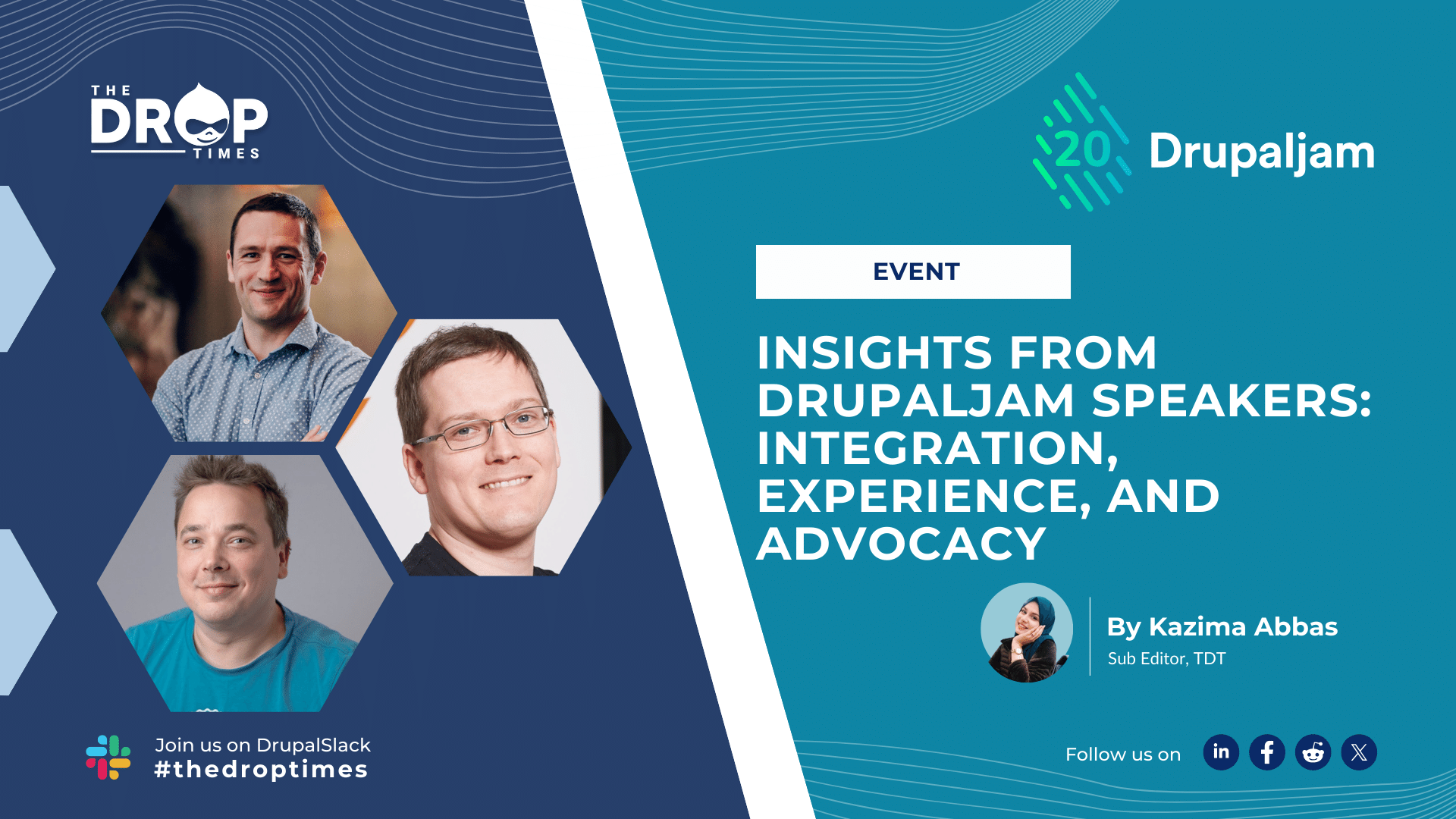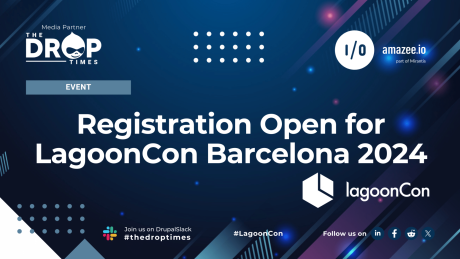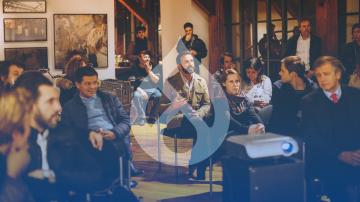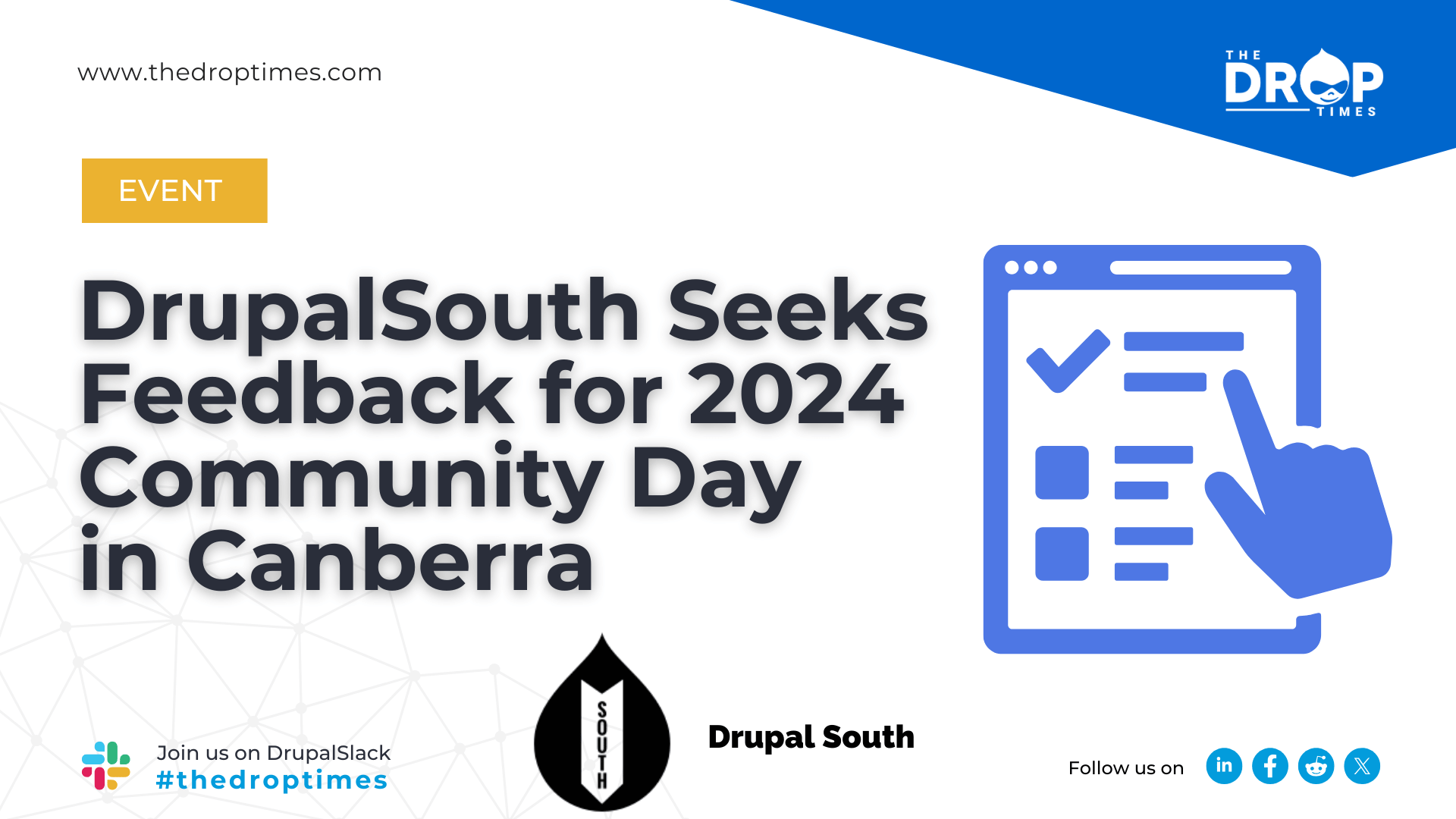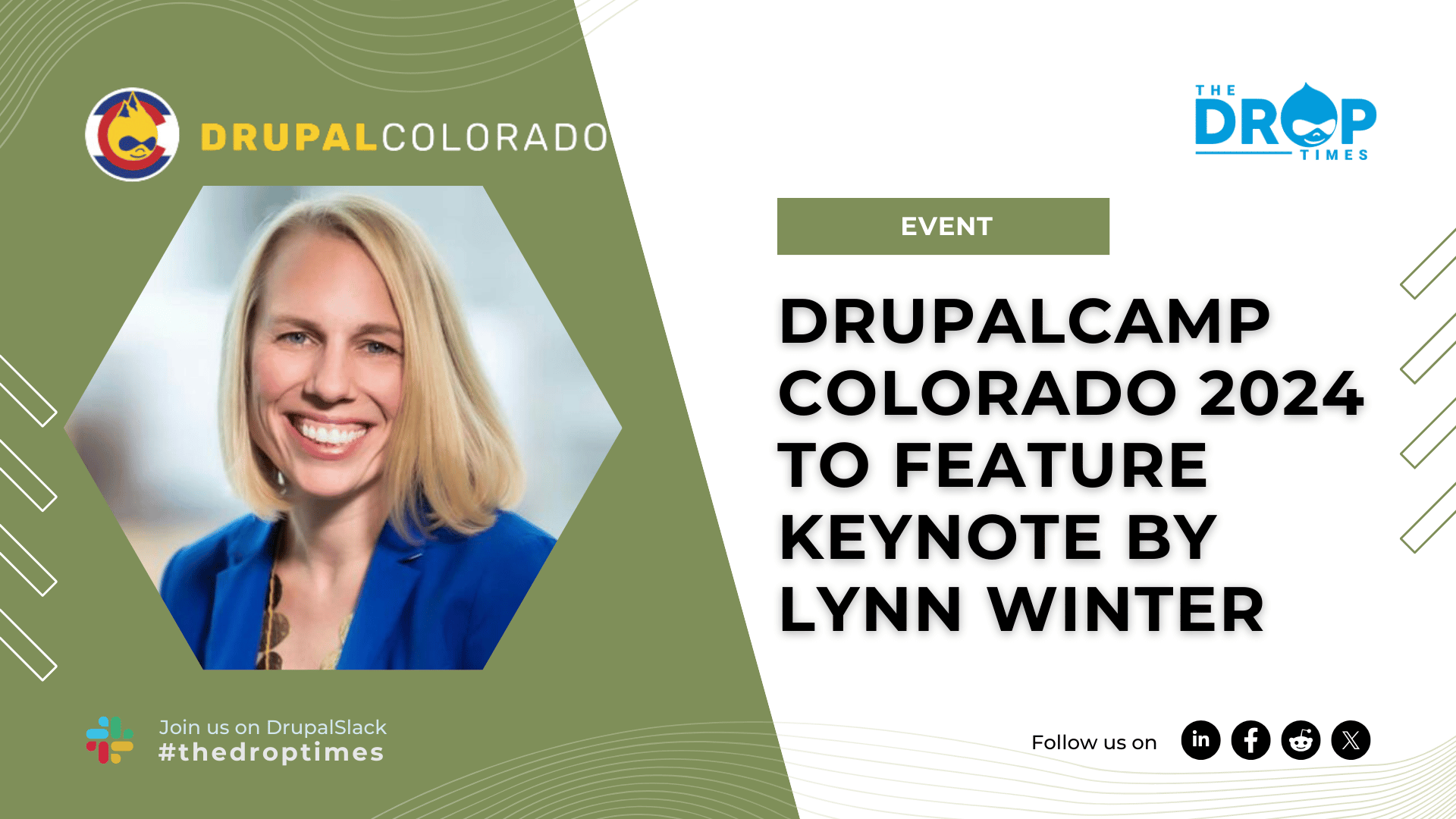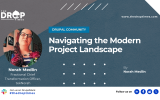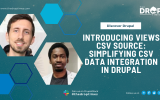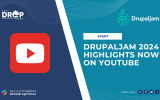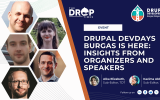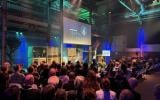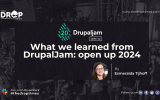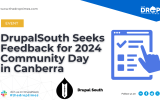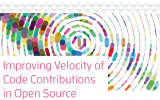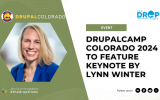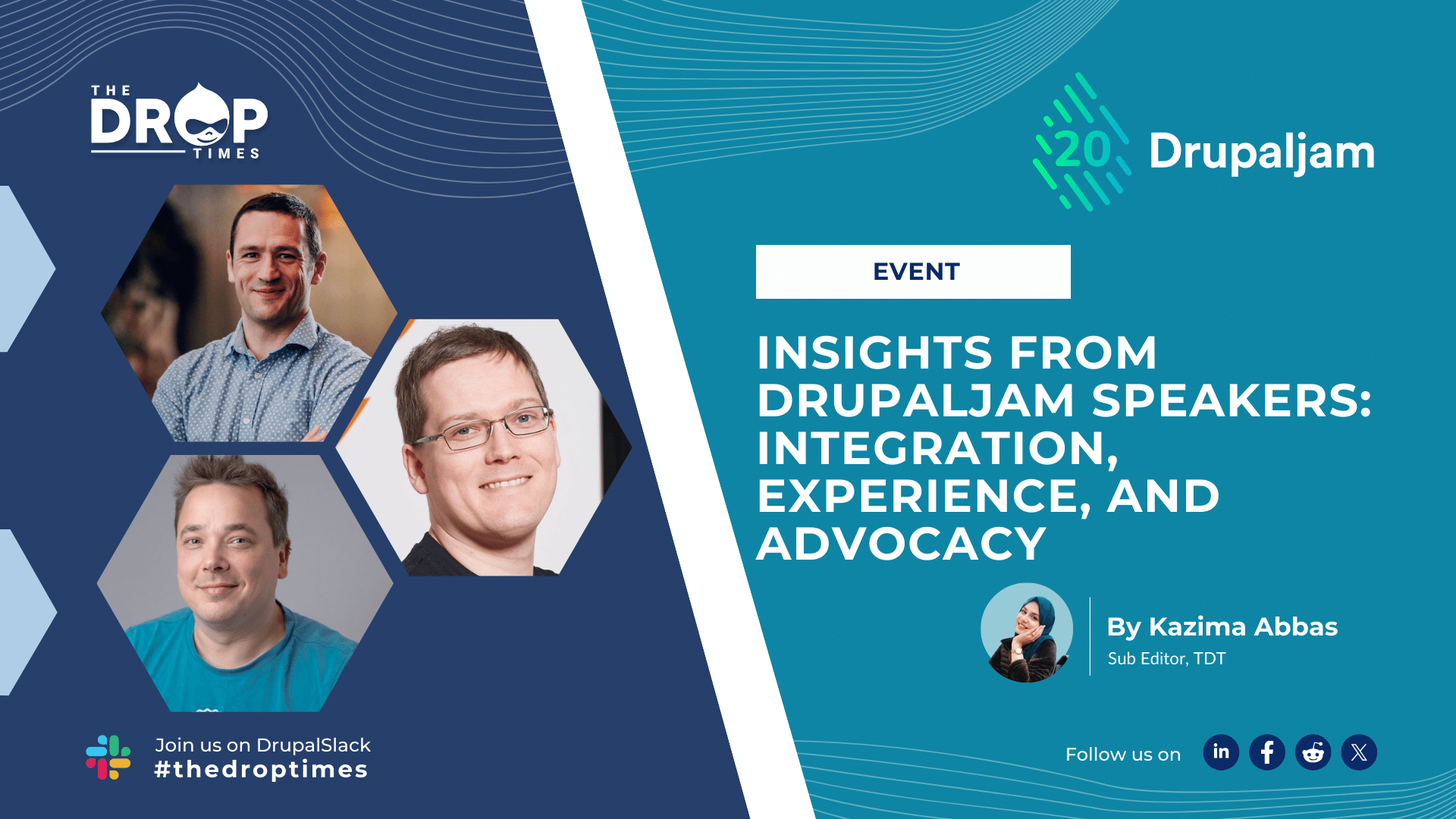Insights from DrupalJam Speakers: Integration, Experience, and Advocacy
The Drupal community eagerly anticipates DrupalCamps as invaluable opportunities to connect with peers and stay abreast of the latest Drupal developments. This month, DrupalJam, slated for June 12th, is the largest Drupal camp in the Netherlands, organized by a dedicated team of volunteers. After connecting with the organizers to glean insights into the event, we have penned an article to share their perspectives. You can read it here: DrupalJam 2024: Exclusive Insights from Organizers Driving Community Growth (thedroptimes.com)
Now, let's delve into our discussions with the speakers.
Kazima Abbas, sub-editor at The Drop Times, talked with each speaker, gaining insights into their upcoming sessions.
In these conversations, Frederik Wouters sheds light on integrating RAG and OpenAI technologies within organizational infrastructures, emphasizing the significance of data quality and privacy considerations. Mikko Hämäläinen delves into the complexities of Digital Experience Platforms (DXP), elucidating their role in addressing customer expectations and internal silos in customer management. Finally, Mathias Bolt Lesniak advocates for the importance of open-source software in governmental policies, urging society to rediscover its benefits and advocate for its adoption.
These sessions promise practical knowledge and insights into Drupal and open-source technologies. DrupalJam caters to individuals of all levels of expertise, from seasoned developers to newcomers to the community, ensuring a rewarding experience for every attendee.
Now that we have a deeper understanding of the topics at hand, let's explore each speaker's session in detail.
Frederik Wouters
TDT: Frederik, in your session at DrupalJam 2024, 'Apply RAG, OpenAI Integrations, and Interpolation,' you'll be showcasing how companies can leverage these technologies to query internal knowledge bases as easily as using ChatGPT, thereby saving significant man hours. What are some of the key challenges you foresee in integrating RAG and OpenAI technologies within existing company infrastructures, and how can organisations overcome these to maximise the efficiency and accuracy of their internal knowledge management?

Frederik Wouters: Hey there, great question! So, when it comes to integrating RAG and OpenAI technologies within a company’s infrastructure, there are some challenges to be aware of.
Firstly, the quality and consistency of the data in the internal knowledge base are important. If the data is not up to date or badly structured, the accuracy of the AI’s responses will suffer. To tackle this, organisations should ensure they have processes in place for regular data/content maintenance and updating (put an expiration date on important content!).
There are multiple architectural options to integrate RAG into your organisation. You can do it embedded in an existing application and bump into scaling hurdles later, or you can set up a dedicated RAG system, but the upfront costs will be higher. It depends on your situation and goals.
Integrating the RAG technologies with existing systems and workflows can be easy and complex. You might need to do some custom development work or use APIs to connect everything up. To make this easier, it’s a good idea to work with experienced developers or consultants who understand what they’re doing.
Also, there might be some concerns around data security and privacy when using AI to work with internal documentation or sensitive content. There are already plenty of alternatives out there for embedding AI, Large Language Models (LLMs) and Vector Databases. So it’s certainly worth looking into them to be compliant with relevant data protection regulations.
When looking at AI Interpolation and OpenAI integrations I think the challenge at the moment is that there are a lot of modules popping up. The ecosystem of these integrations is still very young. I think some movements still need to happen. Here’s an analogy: Before there was search_api (is that 14 years ago already - oh my), there were multiple competing/overlapping Apache Solr integrations. search_api solved a lot of problems by being a central hub for search. I see the need for a similar central point in the LLM landscape. The landscape is changing fast, so a good structure will help us in the long run (so that you can easily plug AI models).
I hear that the module llm_provider has ambitions to be that central point, and Michal Gow (seogow) is working on providing services for LLMs for the ai-interpolator module (to give an example).
The cool thing about these technologies is that they make the users more efficient and the systems/interfaces much easier/simpler. There might be some concerns about job displacement. But once you look into more detail, you will quickly realise these tools are like power tools for a carpenter/builder. You still need the carpenter/builder; they can be much more efficient with the right tooling. Pushing further on that thought, I think if you ask current-year builders/carpenters to go back to work without power tools, they would not be interested. For content editors that work daily with language, tools like a language model are powerful tools that will be essential in the future (my prediction).
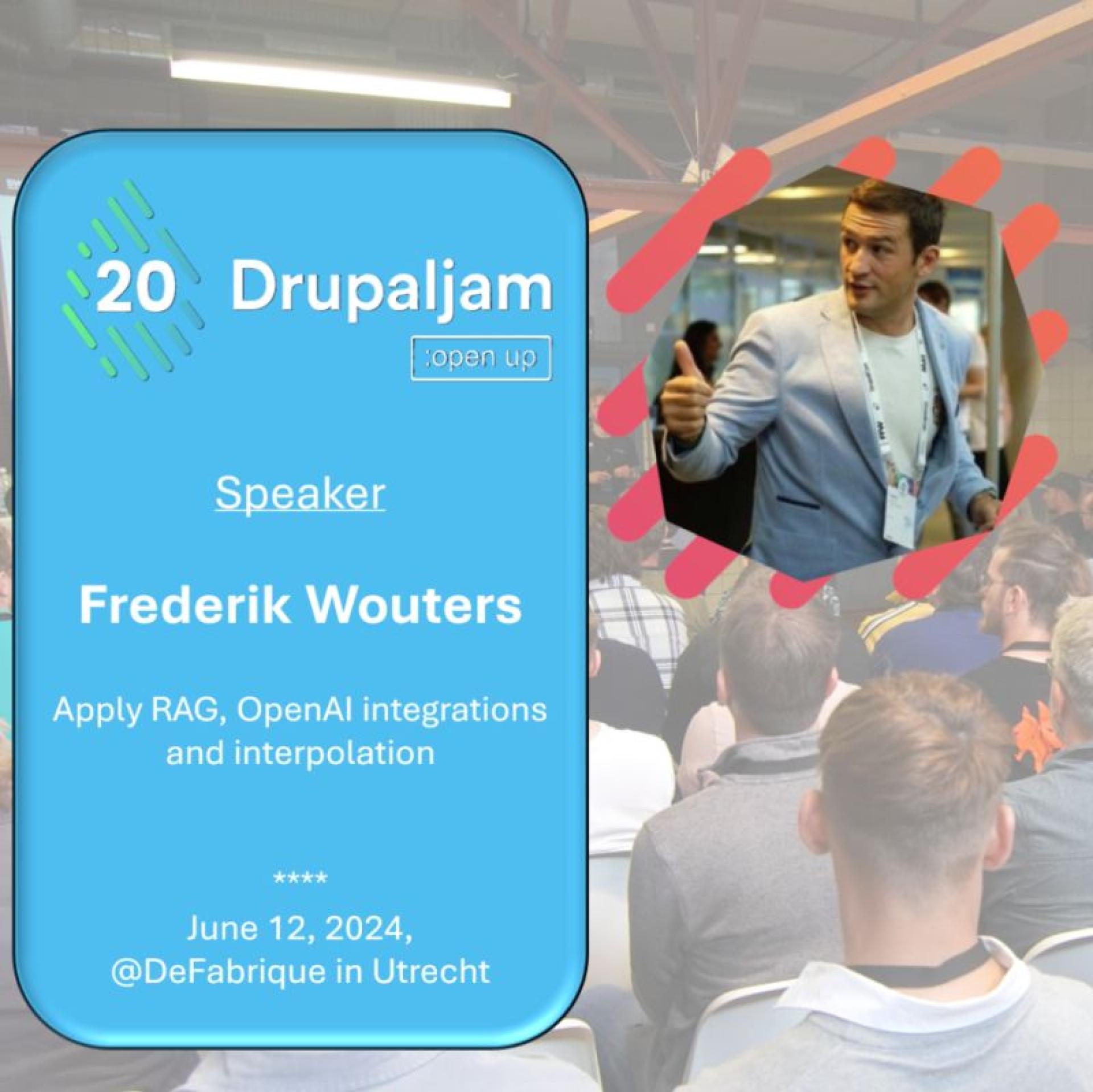
Mikko Hämäläinen
TDT: Mikko, in your upcoming session at DrupalJam 2024, 'DXP for Dummies - Building Open Source Digital Experience Platforms,' you'll be exploring the key components and solutions for creating a DXP. For those new to the concept, what are the main problems that a DXP aims to solve, and how do composed platforms differ from monolithic ones in addressing these issues? Additionally, could you highlight some open-source solutions that are particularly effective for building a composed DXP?

Mikko Hämäläinen: The main issues I see a DXP might solve are: matching customer expectations and removing internal silos related to customer management. The complexity of digital marketing has increased during the past years. Customers have higher expectations for their experience during the customer journeys, they are more active in seeking information, use multiple channels and in general, expect the companies to match their values before committing to a brand. For the companies, maintaining multiple channels such as web site, commerce, support portal, and social media leads to the risk of building internal information silos and, from the customer perspective, broken customer experience from one channel to another.
I guess many companies are already seeing the silos: customer data in CRM or marketing automation is not synched with each other, or the data with an issue tracking system, or the clerk at a brick-and-mortar store does not have access to the customer's recent activities. So, a DXP aims to combine all this data into a single cohesive and unified customer profile and provides means to use the data for hyper-personalization in the communication channels. This needs to be done transparently and honouring customers' privacy.
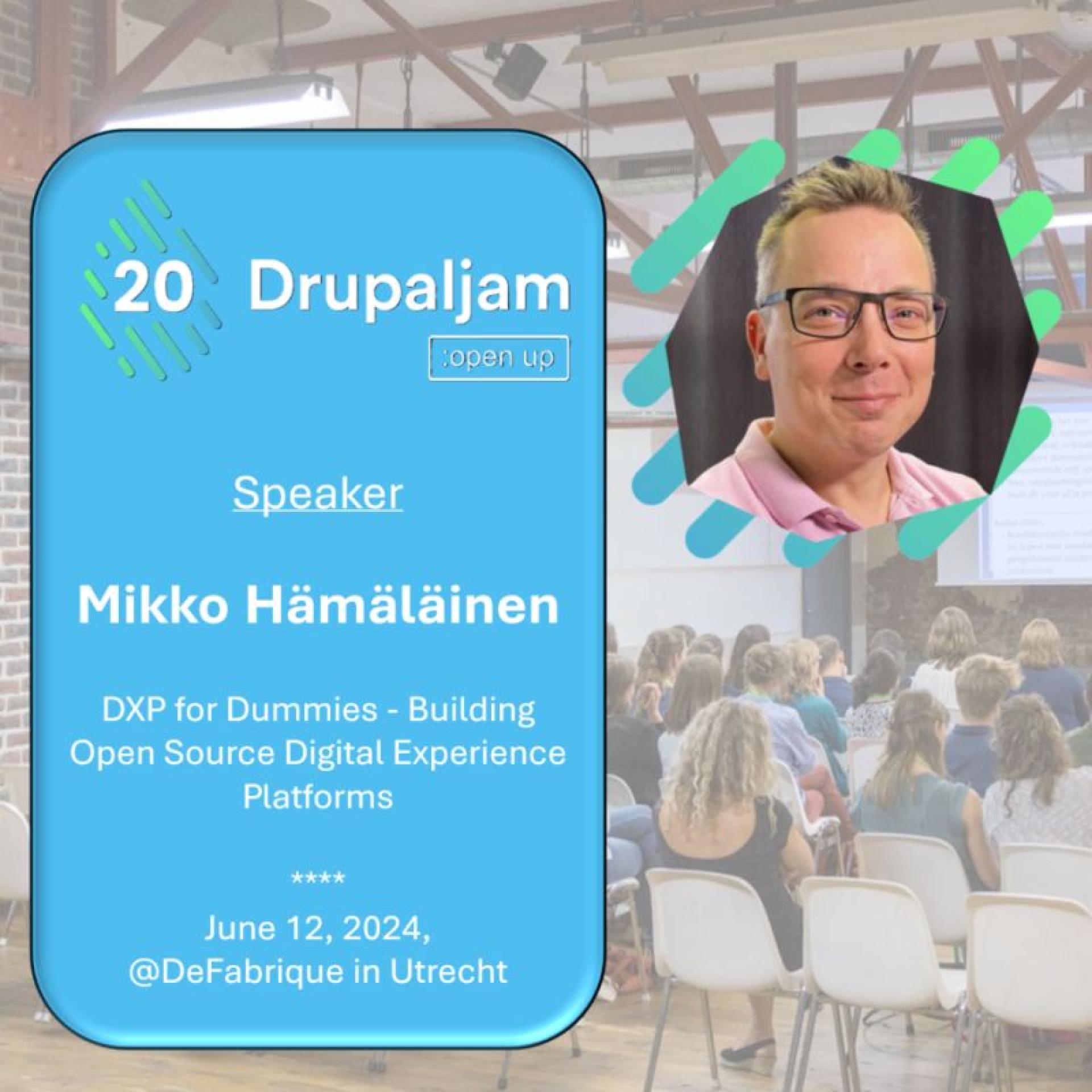
The traditional way of building a monolithic system refers to having an all-in-one solution. The technology is pacing forward quicker than the vendors can update their systems. A composed solution enables using the best-of-breed solutions, or maybe something you already have at your organisation, to tackle the various aspects of a DX platform. Popular open-source choices for the building blocks include Drupal, Mautic, Apache Unomi and Matomo, but with a composed solution, you're not limited to them. You can probably build everything with other open-source solutions and freely combine them with the cloud SaaS solutions of your choice as long as they play nicely with each other.
Mathias Bolt Lesniak
TDT: Mathias, in your upcoming session at DrupalJam 2024, 'Defend FOSS: We need to remind the world what we're about,' you highlight the challenge of proprietary systems winning pitches that should favour Open Source solutions. As you reflect on the past 24 years of Open Source innovation and its impact, what key messages and strategies do you believe we need to focus on to effectively advocate for Open Source in the future, particularly in sectors like government where the stakes are high?

Mathias Bolt Lesniak: The EU's Cyber Resilience Act started as very bad for open source. That's fixed now, but the process showed us that the greatest danger to open source is not malevolence but simple ignorance. When governments choose proprietary software over open-source solutions, it's not because we're losing a war. (The arguments for open source are simply too good for that.) Instead, it's because we forgot to remind governments — and maybe ourselves too — of the real benefits of open source. Open source isn't taught in school. We've lost the vocabulary, and in my session, we'll discover it again.
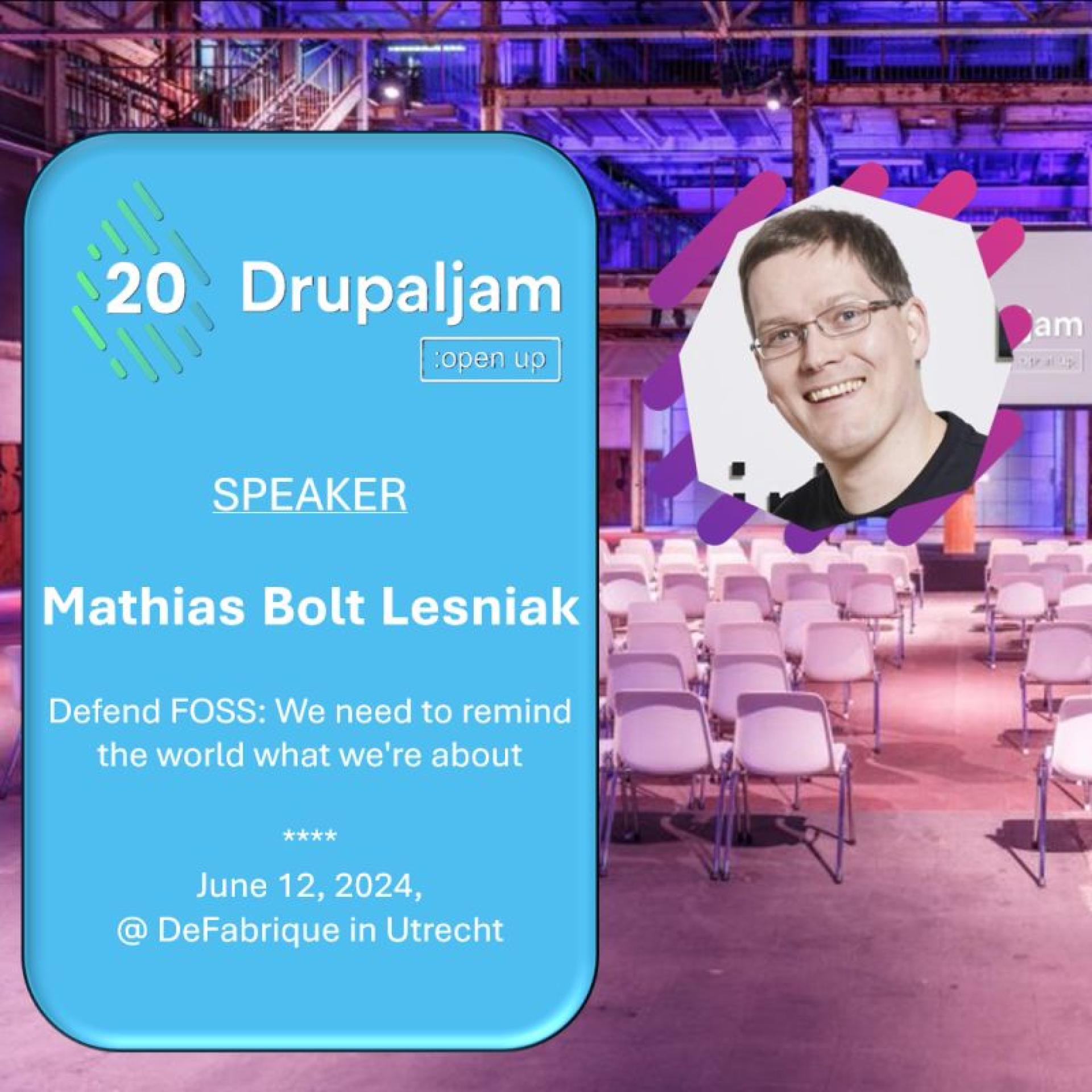
In conclusion, DrupalJam serves as a vital hub for knowledge sharing and community engagement within the Drupal ecosystem. Through our discussions with event organizers and speakers like Frederik Wouters, Mikko Hämäläinen, and Mathias Bolt Lesniak, we've gained valuable insights into key topics shaping the future of Drupal and open-source technologies.
We'll continue to share insights from other speakers in our upcoming coverage. Stay tuned for more valuable perspectives and discussions from DrupalJam's diverse lineup of speakers.
Disclosure: This content is produced with the assistance of AI.



